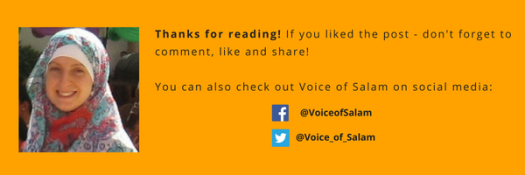
Empowerment and faith.
For many people, the idea of self-empowerment and faith may seem anything from clear, to complex or even contradictory. For me however, these two concepts merge in something incredibly powerful and beautiful.
Empowerment signifies hope, energy and self-determination. It means being who you are in confidence and with a sense of self-ease. Yet for many it almost implies a lack of higher authority, not simply self-independence.
So where does faith fit into this? Doesn’t faith imply simply submitting to a sense of authority? Isn’t faith about following “rules” not “what we want”? Well as a woman “of faith” I feel self-empowered and here’s why!
Spirituality and self-empowerment
Firstly, I find nothing more empowering than feeling I know where I belong within myself and the Universe. It truly is empowering to know that God is with me every step of the way, even in my darkest moments. It is this sense of solidarity, support, love and mercy that sustains me, gives me hope and encourages me that I am worth it – no matter how I may feel! After all, God purposely created us all.
So for me, acknowledging God’s existence is not dis-empowering – it’s comforting. I’m not perfect, I’m human and far from flawless but even in sinning/”doing wrong” I can ask God for forgiveness. Ultimately, it’s down to me to “rise up” and not pull myself down. That in itself is a lesson of self-confidence, growth and self-empowerment.

Life as a Muslim woman
Secondly, as a Muslim woman, I feel that the words of Allah Almighty in the Holy Qur’an inspire such self-empowerment in more ways than one.
Despite the continued abuse of women’s rights worldwide – often falsely in the name of “Religion” or through cultural practices such as forced marriage, female genital mutilation and other forms of gender-based violence – I know 100% in my heart and soul that as a woman I am the equal twin half of humanity and that God would never call for such brutal unjust violence.
As a woman (and a strong one at that!) I believe that I am designed exactly the way that God willed. In the Qur’an, Allah Almighty says: “… be you male or female – you are equal to one another” (3:195). To cite merely a few examples of female emancipation and equality in Islam, in the early days of the mission of Prophet Muhammad (pbuh), female infanticide and forced marriage were outlawed and in his final sermon, he specifically urged his community to respect the rights of women for they are equals, worthy of dignity and respect.
More broadly however, I think that, regardless of gender – the words of Allah give me a message to follow, a meaning and a purpose in life. Not only this, they place me inside a community of people within the same mission. For me in particular though this mission is for all those striving on the same path regardless of their specific faith. So what is the mission? Well it’s simply to believe in a (single) Creator, to look after His Creation and to do good deeds. United in faith and under God’s guidance, this is our purpose as stated in the Qur’an:
“The believers, men and women, are helpers, supporters, friends and protectors of one another, they enjoin all that is good, and forbid all that is evil, they offer their prayers perfectly, and give Zakah (obligatory charity) and obey Allah and His Messenger. Allah will bestow Mercy on them. Surely Allah is All-Almighty, All-Wise.” (9:71).
The Believer as described here has achieved their ultimate relationship with Allah, God, The Creator. I however am far from this almost flawless observance. I have a long way to go (and may never fully get there) but this is the inspiring destination. I’m taking steps and that is to me what makes my faith – or any faith for that matter – truly empowering and an essential driving force. I know that each and every day of my life I am wanted, accepted, loved and watched over by our loving Creator, my God.
Happy International Women’s Day!
Credits and acknowledgments:
This article was first published by Three Faiths Forum on 08/03/2018 (author: Elizabeth Arif-Fear).
Image credit (feature image): Aslan Media (CC BY-NC-ND 2.0)



